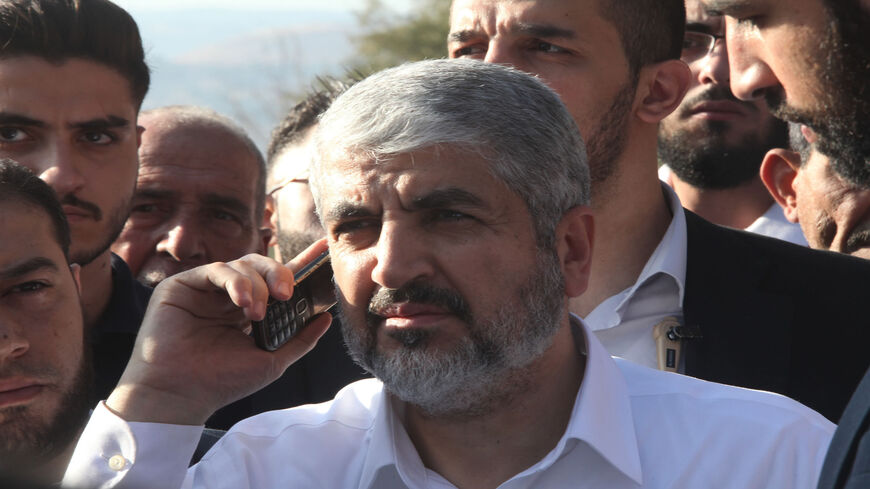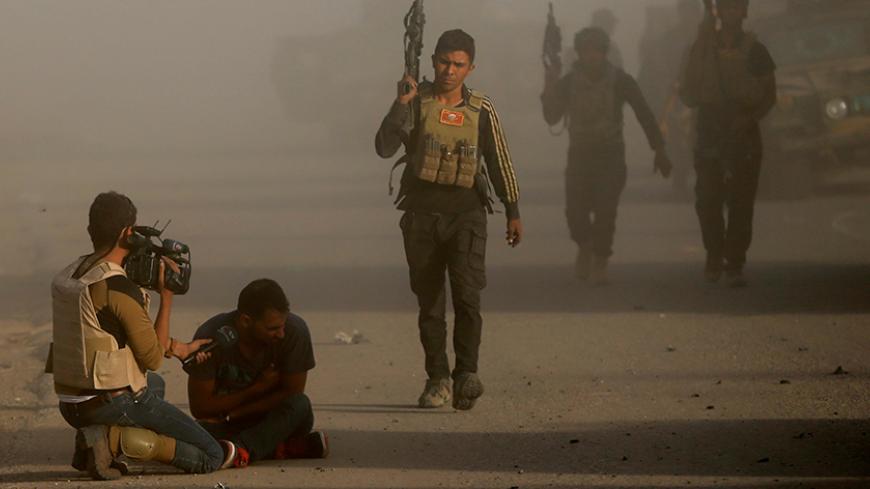Saudi media hosting more Israeli figures since Gaza war
Saudi television channels and newspapers have interviewed several Israeli officials since the Israel-Hamas war began in October.

Amid the Israel-Hamas war in Gaza and ensuing tensions in the region, Israeli officials are increasingly appearing in Saudi-owned print and broadcast media to comment on the conflict.
The trend, while not new, has accelerated during the ongoing conflict. Several influential figures in Israeli politics have been interviewed on Saudi-owned channels. Saudi Arabia and Israel have no diplomatic relations, and Riyadh has conditioned any normalization in relations with the Jewish state to Palestinian statehood.
The questioning in the interviews has not veered from Riyadh’s pro-Palestinian positions, but the interviews themselves break a long-standing taboo in Arabic-language media of not speaking to Israeli figures.
On March 11, Israeli Knesset member Danny Danon gave a TV interview on Saudi state-owned Al-Arabiya focusing on the stalled negotiations for a cease-fire and a prisoner-hostage swap deal. Speaking via video call from Jerusalem, Danon said the Israeli side was hoping to reach a cease-fire in Gaza. According to excerpts of the interview posted to Al-Arabiya’s social media sites, he said the problem of the stalled talks does not lie with Israel, but with Hamas.
عضو الكنيست الإسرائيلي داني دانون: نأمل في وقف لإطلاق النار بـ #غزة لكن لا نرى أي مؤشرات على رغبة مشابهة لدى حماس#العربية pic.twitter.com/BduzraBOJv
— العربية (@AlArabiya) March 11, 2024
Last Friday, Adhwan al-Ahmari, host of the talk show “Al-Mada,” broadcast on the Saudi-owned Asharq News, interviewed former Israeli prime minister Ehud Barak, who joined the program via video call to discuss postwar Gaza.
Barak emphasized that Hamas and its military capabilities must be eliminated, adding that Israel has no interest in remaining in Gaza. He suggested that the Palestinian Authority, led by President Mahmoud Abbas, take control of the territory after the war ends.
Meanwhile, former Israeli prime minister Ehud Olmert has made two appearances on Al-Arabiya since October.
Just a few days after Hamas launched its cross-border assault into southern Israel, Olmert gave a 10-minute interview via video to the Saudi channel to discuss the situation. He stressed that there would be no negotiations with Hamas. “There will be war,” he said.
In Olmert's second appearance, in December, he called on Palestinians in Gaza to "stop" Hamas and prevent it from firing rockets toward Israel.
السعودية تقول لا اتفاق دفاعي ولا سلام مع اسرائيل دون الاعتراف بدولة فلسطينية.
— عضوان الأحمري (@Adhwan) March 11, 2024
اليمين المتطرف ونتنياهو لا يريدون قيام دولة فلسطينية !
كيف يرى رئيس وزراء اسرائيل الأسبق ايهود باراك هذا التحدي؟https://t.co/08GrMCEnAm pic.twitter.com/9C6pU42Wrw
Saudi print media have also run interviews with Israeli officials since the outbreak of war in October. In December, Saudi-owned, London-based Al-Majalla, an Arabic-language newspaper, published an exclusive interview with Yair Lapid, the centrist leader of Israel's political opposition.
Al-Majalla senior political editor Ahmed Maher sat down with Lapid in his office in the Knesset to discuss Hamas, the establishment of a Palestinian state and a two-state solution. Maher also touched on the latest regional developments as well as the domestic situation in Israel.
Avichay Adraee, the Arabic-language spokesman for the Israeli military, is one of the most frequent Israeli guests on Saudi channels, notably appearing on Al-Arabiya and Al-Hadath.
In November, the Lebanese journalist at Al-Arabiya Layal al-Ekhtiar was met with widespread criticism for interviewing Adraee for the Riyadh-based television. Lebanese authorities at the time issued a search warrant against Ekhtiar.
Lebanese law prohibits contact between Lebanese and Israeli citizens — Lebanon and Israel remain technically at war — and could result in charges of treason or espionage, punishable by prison or death.
Several other Arab countries also frown upon contacts between their citizens and Israelis given the decades of Arab-Israeli political tensions and military conflicts. Egypt became the first Arab country to sign a peace agreement with Israel, in 1979. Jordan followed suit in 1994, but Israeli officials are rarely interviewed on Egyptian and Jordanian channels.
Saudi-owned channels have also regularly interviewed senior Palestinian officials since the conflict. The officials include President Mahmoud Abbas, interviewed by the Saudi-owned daily Asharq al-Awsat, and senior Hamas political leader Khaled Meshaal who appeared on both Al-Arabiya and Al-Hadath.
Since the signing of the Abraham Accords, which normalized relations between the United Arab Emirates and Israel in 2020, the United States has been in talks with Saudi Arabia to normalize its relations with Israel. Those talks gained momentum before the Gaza war but have largely stalled since then.
While the Biden administration worked on a Saudi-Israeli peace deal last year, an Israeli delegation attended a UNESCO meeting in Riyadh, in September, in the first publicly announced Israeli visit to Saudi Arabia.
After Israel launched an air and ground offensive in Gaza following Hamas' Oct. 7 attack on Israel, Saudi Arabia reportedly paused discussions on a deal with Israel. Since then, Saudi officials have stressed the need to secure Palestinians' right to statehood, and with that Israeli-Palestinian peace, before moving forward with normalization.
More than 31,341 Palestinians have been killed in Gaza and 73,134 others injured since October, according to health officials in Gaza. Hamas’ cross-border assault on southern Israel resulted in some 1,200 people killed and more than 240 others taken hostage.








